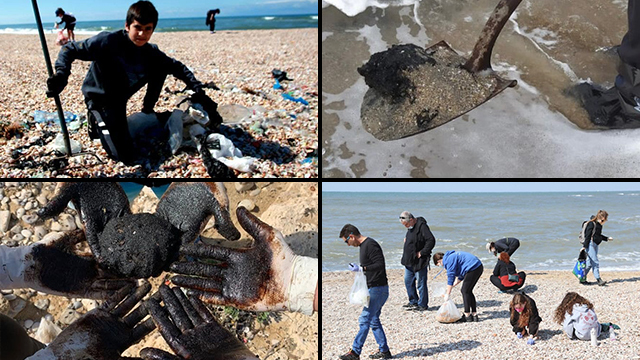Gilad Kariv, the Knesset's first-ever Reform rabbi, is the left-wing Labor party’s environmental point person.
For the history-making rabbi, unlike his counterparts in the Haredi parties, action against global climate change is a faith-based initiative.
“Reform Judaism and Progressive Judaism in general are working very hard now to shape a Jewish response to the environmental crisis,” Kariv tells The Media Line.
“It’s part of our theology that emphasizes ethics, moral behavior, a sense of social and communal responsibility," he says.
“Here in Israel, we have an opportunity to use the role of Jewish tradition in Israeli discourse to strengthen the awareness of the larger public audience to the environmental crisis," he continued.
According to the rabbi, Jewish narratives is a useful tool in promoting awareness of the climate crisis.
Kariv cites the example of shmita, the final year of a seven-year agriculture cycle where the land is left fallow, which will happen next year.
“We have a unique educational opportunity, and not only a halachic debate on how you observe shmita in modern Israel," he says. "This is something that I am bringing with me to the Knesset.”
Kariv also cites bal tashchit, an ethical concept in Jewish law that forbids senseless destruction, and the Jewish calendar, which is connected to the seasons and agricultural growth, as two of numerous examples within Judaism that show the necessity of taking care of the planet.
“It’s true there is a huge gap between the traditional language and the scientific language of today, which is something that is natural because we are talking about an ancient tradition," he says.
"But when you look at the mitzvot in the written Torah, you see that there is a very strong awareness to the duty that human beings in general and the Jewish people must carry to care for the divine creation and those elements exist in our tradition.”
3 View gallery


Israeli environmentalists protest in Tel Aviv against the 2019 launch of the Leviathan gas rig
(Photo: AFP)
All of this shapes Kariv’s environmental point of view and Labor’s environmental platform, which includes conforming to the Paris Agreement on climate change, of which Israel is a signatory, sourcing half of the country’s energy needs from renewable sources by 2030, and being completely independent of fossil fuels by 2050.
Environmentalism also cuts across the ideological spectrum in Israel.
For Jeremy Saltan, director of English-language operations for the right-wing Yamina party, Judaism also shapes his beliefs including on the environment.
“Considering God created the world, that means the environment is his creation and therefore needs to be looked after," he says.
"There is the issue of bal tashchit that you can’t destroy unnecessarily and the agricultural nature of the three pilgrimage holidays that focus on the connection between man and the land, ” Saltan says, referring to the Passover, Shavuot and Sukkot festivals.
But Victor Weis, co-head of the Vote Green initiative and former head of the Tel Aviv-based Heschel Center for Sustainability, says Israel’s Haredi parties − United Torah Judaism and Shas − are more reluctant to act on climate change.
“The environment is not at the forefront of the religious parties’ policy priorities,” Weis says.
“The cities are very crowded and, looking forward to 30 years from now, they are going to grow and so is the environmental problem in those sectors.”
3 View gallery


Volunteers clean up tar on Israel's beaches after the February 2021 oil spill that was the worst in the country's history
(Photos: (Photo: Oshrat Lopo, Roee Idan, Moti Kimchi)
Kariv says the Haredi parties’ lack of environmental platforms is part of a broader societal problem.
“I’m not so sure the ultra-Orthodox parties have any platform; they are very sectorial parties, they don’t bother to present a clear platform, including on the environment," he says.
"Unfortunately, not all Jewish denominations identify environmental issues as Jewish issues and they emphasize other parts of the Jewish tradition and Jewish law. … The more traditional Orthodox and ultra-Orthodox ignore environmental issues about the same as they ignore social issues,” Kariv says.
“It’s part of their lack of understanding we have a duty not to minimize Judaism only to ritual and mitzvot… We have a Zionist opportunity here… to once again apply it to the land, to the air, to social issues, and this is something Reform Judaism is committed to.”


